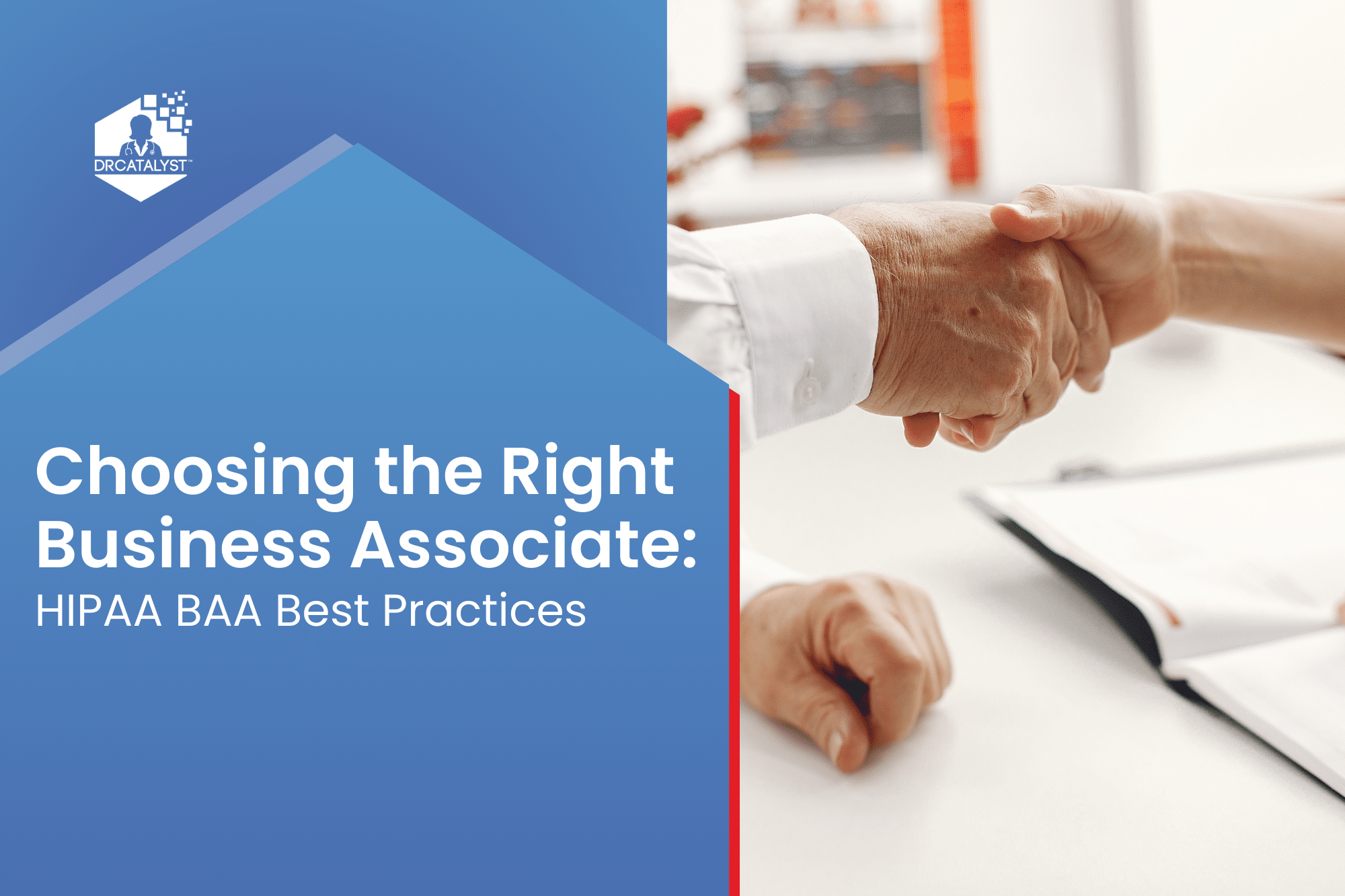
Your patients trust you with their most sensitive information. Can you say the same for those who handle data on your behalf?
With most of the industry tapping third-party vendors to manage several healthcare functions, like data storage and billing, ensuring the security of patient data has never been more critical. The typical modern hospital works with over 1,300 external vendors, as reported by the Ponemon Institute. A single misstep in choosing a business associate can result in compliance violations, data leaks, and loss of patient trust.
If you’ve already read about what a business associate agreement is, its importance, and how to avoid common execution mistakes, you’re ready for the next step: finding the right business associate. Below, you’ll learn how to identify vendors who meet your legal, operational, and ethical standards—so you can partner with one that matches your commitment to security and integrity.
Partner with a Certified HIPAA-Compliant Business Associate
A business associate in healthcare is any third-party entity that handles, processes, or accesses protected health information (PHI) on behalf of a covered entity. These entities must comply with HIPAA regulations to ensure patient data security.
Examples of business associates include:
Under HIPAA, business associates are legally bound to safeguard PHI in the same manner as covered entities. A business associate agreement (BAA) formalizes this responsibility.
Today, more healthcare providers are turning to third-party vendors to streamline operations and boost efficiency. While this brings various benefits, it also introduces challenges in safeguarding sensitive patient data. There are risks, and non-compliance can result in costly breaches, hefty fines, and irreparable damage to reputation.
To mitigate these risks, choosing a reliable and compliant business associate is absolutely critical. You need partners who understand the unique requirements of handling protected health information and are fully committed to meeting HIPAA standards.
According to the HIPAA Journal, data breaches involving third-party vendors have exposed millions of healthcare records in recent years. In 2023 alone, over 93 million healthcare records were compromised due to security lapses by business associates—outpacing the 34.9 million records impacted by breaches involving healthcare providers directly.
These statistics are a stark reminder that while third-party vendors can be valuable assets, they represent a major vulnerability if not properly vetted.

Healthcare organizations must conduct thorough due diligence on prospective vendors to verify their security practices, ensuring all partners adhere to the HIPAA Security Rule. Here are the steps you need to do:
Start by evaluating whether your prospective business associate has the expertise to handle sensitive healthcare data. HIPAA compliance is complex, and only some organizations meet its stringent standards. To ensure your associate is qualified, follow these steps:
Even the most HIPAA-aware organization needs robust technical safeguards to protect PHI. You will want to look into their security measures to be sure. Don’t just take their word for it; ask for specifics, such as:
A business associate often works with subcontractors who may also have access to PHI.
Compliance obligations should flow down to every subcontractor. It is not enough that your direct vendor is compliant—every subcontractor they work with must adhere to the same standards.
Ensure the vendor has a HIPAA business associate agreement with all their subcontractors who may handle PHI. Request evidence of these agreements and inquire how the primary business associate ensures compliance across all subcontractors.
The vendor should have mechanisms for monitoring the activities of their subcontractors. They must conduct audits, track subcontractor compliance status, and ensure subcontractors are up-to-date with HIPAA regulations.
Despite the best efforts, breaches can still happen. When they do, timely and transparent notification is critical. Ensure the vendor has a well-defined process for notifying covered entities of a data breach.
Ask for details of their breach response plan. The plan should outline their steps in case of a breach, including containment, investigation, and remediation. Vendors with a clear strategy are more likely to handle incidents effectively.
Request information about any past breaches and how the vendor handled the situation. Such data will give you insight into their approach to transparency and whether or not they take incidents seriously.
Read: Avoiding Common Mistakes in HIPAA Business Associate Agreements
To protect your organization and maintain trust with patients, be on the lookout for these red flags when evaluating potential business associates:
Business associates must follow the following HIPAA rules to ensure that health information remains secure:
One of the first steps to ensuring HIPAA compliance is having a business associate agreement between a healthcare provider and its third-party vendors. Since the passage of the HITECH Act, HIPAA BAAs have taken on even greater importance, as they hold business associates directly accountable for meeting HIPAA requirements. If a vendor fails to follow the terms of the BAA, it could lead to a HIPAA violation.
Here are a few examples of how business associates can face accountability:
Selecting a business associate for your healthcare organization is a decision that impacts compliance, security, and integrity.
A great partner won’t just meet the bare minimum; they’ll be an extension of your team, helping you stay ahead of risks and build trust with every patient interaction. Don’t rush the process. Ask the tough questions, demand transparency, and look for a business associate who shares your commitment to doing things the right way.
At DrCatalyst, we pride ourselves on providing fully HIPAA-compliant virtual staffing solutions that meet the industry’s highest standards. As recipients of the HIPAA Seal of Compliance from the Compliancy Group, we ensure your practice can operate securely and efficiently.
Let us help safeguard your patients’ data while optimizing your practice’s operations. Contact us today to learn how we can support your practice with secure and efficient solutions.
Hire Virtual Staffing Professionals with Proven HIPAA Compliance